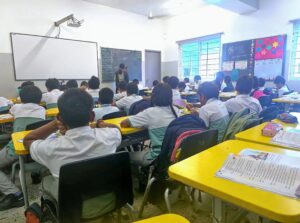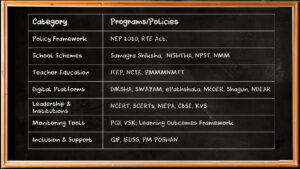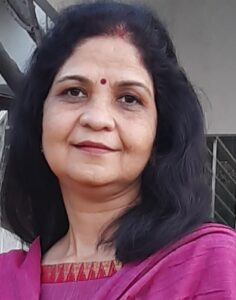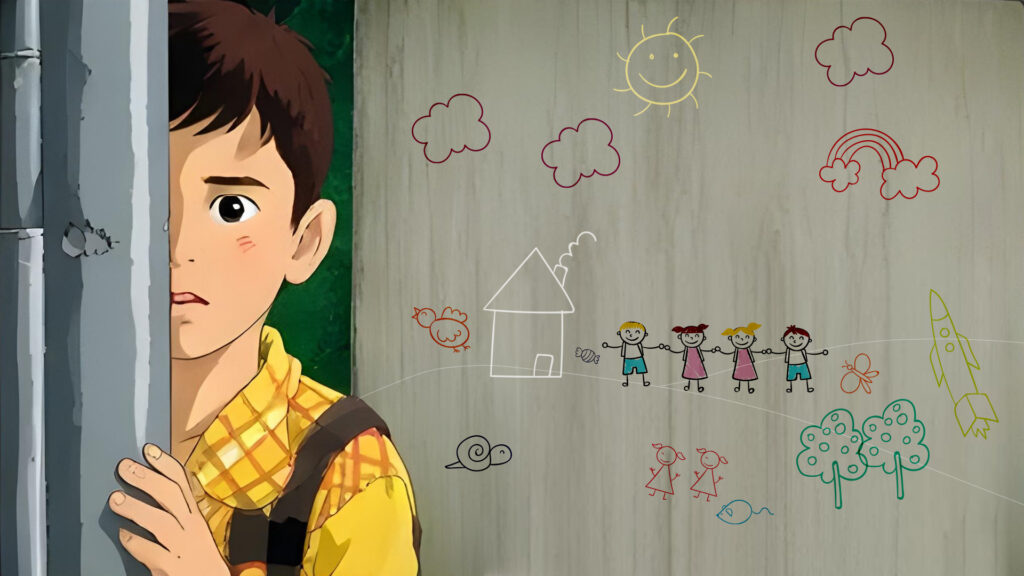The lively classroom of a government school in Chennai, bustling with energy and bright colours, features big pictures of numbers, alphabets, animals, crafts, and paintings that line the walls, transforming the classroom into a joyful space. But beneath this cheer, children from turbulent homes bear emotional burdens they never chose to carry. For many of these children, school becomes the only refuge —a place to find respite among their friends and teachers.

Indian society is facing a marital crisis wherein the conjugal relations are ending in divorces more frequently than ever. The Ministry of Statistics and Programme Implementation, Government of India, conducted the Period Labour Force Survey (PLFS) 2023-24, which shows a rise in divorce cases among men and women compared to the 2018 survey. It is ultimately children from these broken homes that bear the cost of the separation of parents.
The government periodically takes initiatives based on requirements and creates frameworks and policies that focus on educating both children and teachers. The current scenario calls for formulating policy specifically to train teachers for supporting children from broken homes, single-parent households, divorced families, or unstable and abusive family environments.
High-level estimates indicate that this issue could affect millions of school-going children in India. The employment of a counsellor in a school is a fragmented phenomenon. For instance, the Central Board of Secondary Education (CBSE) mandates that to get accreditation, the school must employ full-time counsellors. For Council for the Indian School Certificate Examinations (CISCE) it is not mandatory. Some state boards follow it, and others are not too serious about it.
Teachers stated that the boards do not make surprise visits to ensure compliance with their policies. Moreover, the counsellor’s intervention focuses more on exam-related trauma, adolescent issues, child psychology, learning issues, bullying, etc.
Educators Speak Out on Training Gaps
The Voices spoke to a couple of educators who emphasised the need for the government’s intervention to safeguard children from broken homes.
Sutapa Dasgupta a coordinator at Vedanta Academy (CBSE) for grades 6, 7 and 8 from Chennai with over 23 years of experience told The Voices that she can identify such children through years of observation. She explained that such children exhibit abnormal behaviour, have low confidence, remain docile and become easily agitated. She pointed out that new teachers often lack the skills to identify and support these children, as evidenced by their B.Ed. Curricula do not exactly train to deal with kids from broken homes and traumatised families.
Another teacher, Suma from Birla Open Minds, who has over 26 years of experience teaching grades 6, 7, and 8 in Chennai, echoed the same sentiment and added that not all schools adhere to government norms regarding the appointment of counsellors. Even those who have deployed one do not have enough of them compared to the number of kids in schools. Gari Roy a former teacher of Aachi Global School from Kolkata with over nine years of teaching experience, reinforces this concern, emphasizing that teachers lack proper training to handle such children. She added that teachers should be trained to handle such children on a day-to-day basis.

Psychologist Speaks Out

Policy Solutions: What Needs to Change
Academicians demand that to mitigate this scenario, the government should focus on the specific measures. The government should collect data and track such children; the ideal time would be during school admission, or the school should inform government agencies once such cases are detected. The government should make it mandatory for every school to employ counsellors.
The teachers’ training curriculum should include extensive training and include subjects where student teachers are taught to handle children with special needs (currently, a generic child psychology subject is taught). Curriculum reforms advised related to the teachers training such as ITEP (Integrated Teacher Education Program), NCTE (National Council for Teacher Education), PMMMNMTT (Pandit Madan Mohan Malaviya National Mission on Teachers and Teaching), NIEPA (National Institute of Educational Planning and Administration), NISHTHA (National Initiative for School Heads’ and Teachers’ Holistic Advancement) and the NEP (National Education Policy) are required. The teacher training curriculum must include specialised psychosocial studies as a compulsory course at the B.Ed. and M.Ed. levels, opine the teachers.
Government Fails to Respond
The Voices contacted the office of the Minister of Education, Government of India and then approached the minister directly regarding this issue, but received no response. The matter was subsequently taken up with the PMO via application number DOSEL/E/2025/0004873. The National Council for Teacher Education is reviewing the query, but has not yet responded.
It appears these silent sufferers will endure a long struggle until the government implements policy-level changes. This growing societal issue is expected to expand considerably in the coming years if authorities do not take the necessary action. It is time for education policy to look beyond textbooks and test results and place a holistic focus on students and educators alike.
Copy Editor: Ajeena Rose

